Leia At Risk: Grief, Nostalgia, and Mythic Storytelling
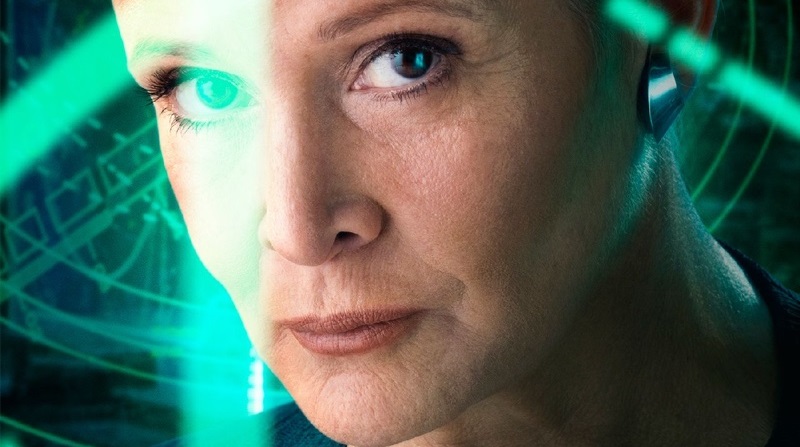 by Tricia Barr & B.J. Priester
by Tricia Barr & B.J. Priester
Fandom and Lucasfilm alike have been in mourning for Carrie Fisher since her death on December 27, 2016. A beloved icon both on and off screen, her impact on Star Wars and its fans will never be forgotten. FANgirl’s staff and contributors shared what Carrie Fisher meant to us, as have others, and our grieving process continues.
Undoubtedly, part of the collective anguish over her passing is not only the loss of her vivid candor and irrepressible wit, but also the loss of her potential. Just turned 60, she was preparing for the release of the documentary Bright Lights about her relationship with her mother Debbie Reynolds, creating a sequel to her one-woman stage show Wishful Drinking, playing a recurring role on the British sitcom Catastrophe, and living life to the fullest. Star Wars fans had delighted in her return for The Force Awakens and were eagerly anticipating her appearance in Episode VIII, not to mention return engagements at Star Wars Celebration conventions, hilarious interviews at red carpet premieres and press tours, and so much more.
Part of that lost potential, too, is her portrayal of the remaining section of General Organa’s story arc in the Sequel Trilogy. Its details, of course, are unknown; with filming perhaps a year away, the script likely is still a work in progress. On the other hand, the Sequel Trilogy had been determined to be a trio of films from the start, and its development has proceeded accordingly. As part of that trilogy-focused creative process, Episode VIII director Rian Johnson reportedly wrote a treatment for Episode IX in addition to the screenplay for his own film. In an interview with Buzzfeed, ILM guru John Knoll said, “I know that they were expecting her to have a pretty sizable role in Episode IX, and now that’s all going to be changed – but I don’t know what the plans are.” An article in The Hollywood Reporter confirmed that assessment: “insiders say Leia was to have been a bigger part of Episode IX than VIII.”
To mourn the loss of Carrie Fisher’s acting performance, though, does not also require grieving the loss of General Organa. The show business cliché is not just an aphorism, but a truism: “the show must go on,” no matter the issue of logistics, finances, mistake, or even tragedy – and in franchise storytelling, so too must the story. It is the reason Robert Jordan ensured Brandon Sanderson was prepared to bring closure to The Wheel of Time, and the prayer of fans of A Song of Ice and Fire that George R.R. Martin needs no such contingency. It is the reason Broadway musicals from Phantom of the Opera and Cats to The Lion King and Hamilton maintain sell-out runs long after the original casts have moved on.
For all that we admire and respect, even idolize, them, actors are not their characters. Certainly, Carrie Fisher is not just any Star Wars actor – but neither is Leia Organa just any Star Wars character. In last year’s post Rey At Risk, we discussed the need to keep Lucasfilm accountable to the potential of the Sequel Trilogy’s central protagonist in light of several serious factors which might, even inadvertently, undermine her story arc. Now, too, it is equally imperative to keep Leia’s central importance as a character from fading as a consequence of the understandable grief for her most iconic – but never her only – portrayer.
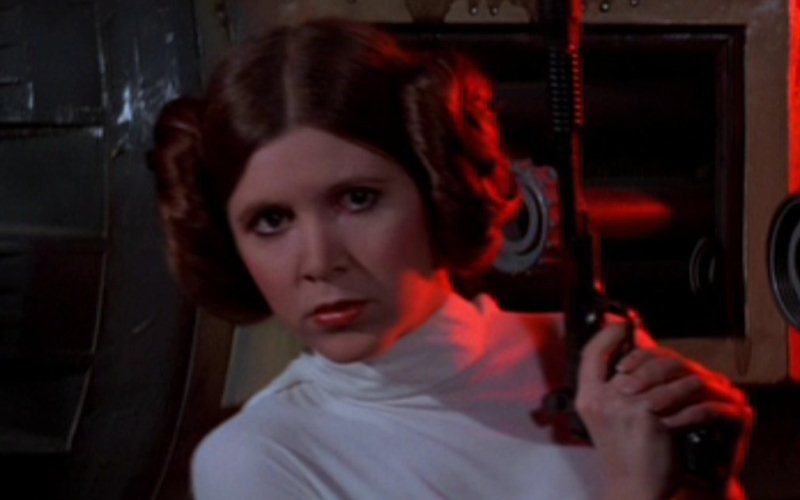 The situation might be different if Lucasfilm had a lengthy track record of superb conclusions for the mythic arcs of its prominent female characters, but the reality is rather the opposite. Since 1983, her Original Trilogy era fans have expressed their consternation over Leia’s importance in A New Hope and The Empire Strikes Back abruptly becoming secondary in Return of the Jedi – especially after the gratuitous objectification of her character at the start of the film. Her mother Padmé suffered a similar fate in the Prequel Trilogy, receiving strong starring turns in The Phantom Menace and Attack of the Clones only to be completely sidelined in Revenge of the Sith – to the point that even her powerful scenes showing her role as a metaphorical mother of the Rebellion alongside Mon Mothma and Bail Organa ended up on the cutting room floor. Although Padmé’s character garnered some rehabilitation in The Clone Wars, that series leaned heavily into the trope of fridging female characters to serve the manpain or motivations of male counterparts, including Asajj Ventress, Satine Kryze, Steela Gererra, Mother Talzin, Mina Bonteri – and nearly Ahsoka Tano, except that Dave Filoni successfully convinced George Lucas not to add her to the list. The Star Wars Legends tales fared no better, falling flat in delivering satisfying story arcs for Leia, Mara Jade Skywalker, Jaina Solo, and numerous others.
The situation might be different if Lucasfilm had a lengthy track record of superb conclusions for the mythic arcs of its prominent female characters, but the reality is rather the opposite. Since 1983, her Original Trilogy era fans have expressed their consternation over Leia’s importance in A New Hope and The Empire Strikes Back abruptly becoming secondary in Return of the Jedi – especially after the gratuitous objectification of her character at the start of the film. Her mother Padmé suffered a similar fate in the Prequel Trilogy, receiving strong starring turns in The Phantom Menace and Attack of the Clones only to be completely sidelined in Revenge of the Sith – to the point that even her powerful scenes showing her role as a metaphorical mother of the Rebellion alongside Mon Mothma and Bail Organa ended up on the cutting room floor. Although Padmé’s character garnered some rehabilitation in The Clone Wars, that series leaned heavily into the trope of fridging female characters to serve the manpain or motivations of male counterparts, including Asajj Ventress, Satine Kryze, Steela Gererra, Mother Talzin, Mina Bonteri – and nearly Ahsoka Tano, except that Dave Filoni successfully convinced George Lucas not to add her to the list. The Star Wars Legends tales fared no better, falling flat in delivering satisfying story arcs for Leia, Mara Jade Skywalker, Jaina Solo, and numerous others.
No matter how great our genuine grief for Carrie Fisher, her death provides no story reason to write out Leia from the role previously envisioned for General Organa in treatments and screenplays for Episode IX. And in franchise storytelling like Star Wars – which is truly myth in the making – the story must come first. A franchise cannot endure across decades based solely on the nostalgia of its original generation of fans; both its initial stories and its ongoing tales must resonate with multiple generations in fandom for its power to captivate to persist. Twenty years from now – as far removed from Rogue One and Episode VIII as those films are from the Special Edition releases – or forty years in the future – as distant from now as we are from the first premiere of the first Star Wars – the story of Episode IX as the finale of the Sequel Trilogy, including the story arcs of the heroes of the Original Trilogy, must hold its power for generations of Star Wars fans who possess no personal nostalgia or grief for Carrie Fisher. Many of today’s fans, too, will feel differently in three years’ time, when the raw pain of loss has faded and the excitement of Episode IX is the immediate emotion of the moment.
Leia has been a central character to Star Wars from the opening moments of its first film, and The Force Awakens makes clear that her intended role in the Sequel Trilogy is at least on par with other two-trilogy characters such as Obi-Wan Kenobi, Yoda, or Anakin Skywalker. She is the mother of the Sequel Trilogy’s central antagonist, Kylo Ren, who betrayed her brother and murdered her husband. In addition to that family saga, The Force Awakens and Bloodline firmly establish that Leia’s role as political and military leader is equally prominent in her story arc, placing her as a fulcrum in the power struggles involving the New Republic, the shattered Empire, the resurgent First Order, and her private Resistance. With Han Solo as the new hero’s archetypal mentor in Episode VII and Luke Skywalker poised to unleash the middle-movie Jedi Master figure in Episode VIII, it is no difficult deduction that Leia Organa has pivotal roles to play in the finales of both the family and galactic storylines in Episode IX. That importance to the franchise’s overarching story must not be suddenly diminished for extrinsic reasons – especially because the major female characters have fallen short in the third movie twice before, and even more so if Leia’s story arc is finally paying off a mother’s role, rather than a father’s, in a Star Wars story.
To write out General Organa from Episode IX would send the message that Leia cannot endure without Carrie Fisher. Though perhaps motivated by idolization of the actress and the grief of her friends and fans, allowing Leia to die with her would be a profound disrespect to the iconic character she portrayed, who has long since grown into a figure so much greater than a heroine in a handful of films. Numerous writers, artists, and performers have delivered worthy portrayals of Leia in animation, videogames, novels, comics, short stories, books for middle-grade and younger readers, and more. As with Padmé during the Prequel Trilogy period, shortchanging a character in the movies can have significant ripple effects in reducing her appearances and significance across other mediums, as well. It seems highly unlikely, too, that Carrie Fisher, a masterful storyteller in her own right, would want the story to suffer for the sake of hero-worship – and especially not at the expense of Leia, whose legacy she sought to protect.
“As my friend, the dear departed Princess Leia, said to me once, ‘Take your broken heart, make it into art.’”
~ Meryl Streep, who played the character based on Carrie Fisher in Postcards from the Edge, during her acceptance speech upon receiving the Cecil B. DeMille Lifetime Achievement Award at the Golden Globes on January 8, 2017
Of course, the decision to retain Leia’s role in Episode IX in full raises another question: how to portray the character in the film in the absence of Carrie Fisher’s vibrant presence. We share our perspective on that topic in a subsequent post. To do anything less than preserve Leia’s legacy in the franchise, however, would only compound the loss Star Wars already has suffered.
- Hyperspace Theories: Bad Luck Ghorman - June 2, 2025
- Hyperspace Theories: One Year Later as ANDOR Kicks Off Season Two - May 15, 2025
- REVIEW: Tales of the Underworld - May 4, 2025

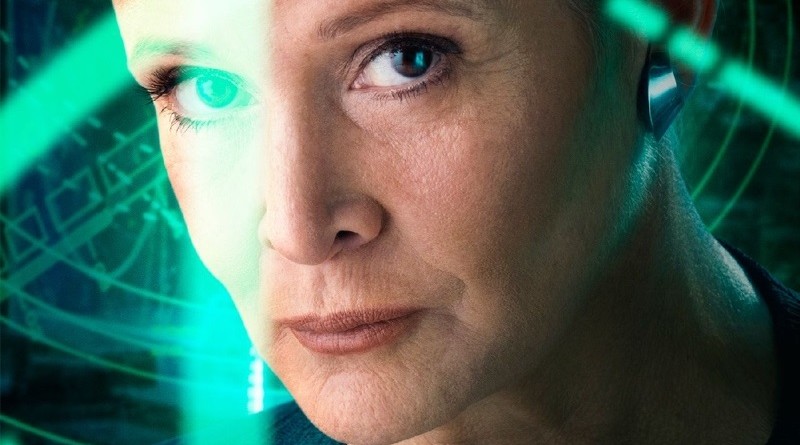







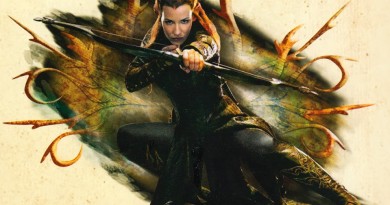
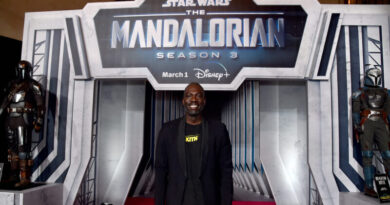

It’s a tricky one, this. On the one hand, if they’re going to give the character a proper trilogy send off, the only way to do it is to replace Fisher with another actress – good luck to whoever has to fill those shoes. On the other, having Leia killed-off off-screen somehow to explain her absence would be shortchanging the narrative arc we had in Force Awakens and will undoubtedly have in Episode 8. It’s not even like they can go the Paul Walker route for Episode 9 and digitally add her into missing scenes for that film, because it hasn’t even started shooting yet! Whichever way Disney and Lucasfilm go, they’re going to be judged for even the slightest misstep (not a position i’d like to be in). You’re correct about the immediacy factor too; in forty years, no amount of nostalgia will help a film avert narrative disaster if they don’t do the character justice, so they need to get this right.
Whichever way it goes, it’s going to upset *somebody*.
Thank you for this post. I’ve seen far too many posts where people think that killing off Leia (offscreen) is the respectful thing to do – but to me, the death of Leia would be a double blow. We may not have Carrie Fisher any more but Leia can – and should – endure.
Women in STAR WARS tend to have terrible endings; and I was brokenhearted at Leia’s fate in VII. (Losing both her son and husband: even being a General can’t compensate for that.) I want to see Leia smile and receive the happiness that she completely deserves.
Thank you so much for articulating perfectly what I’ve been wanting to get out there. Every point so clearly and respectfully stated about this very emotionally-charged issue.
The best way to honor Carrie Fisher is keep Leia going and complete the trilogy as intended.
Pingback:Why We Support Recasting General Organa – FANgirl Blog